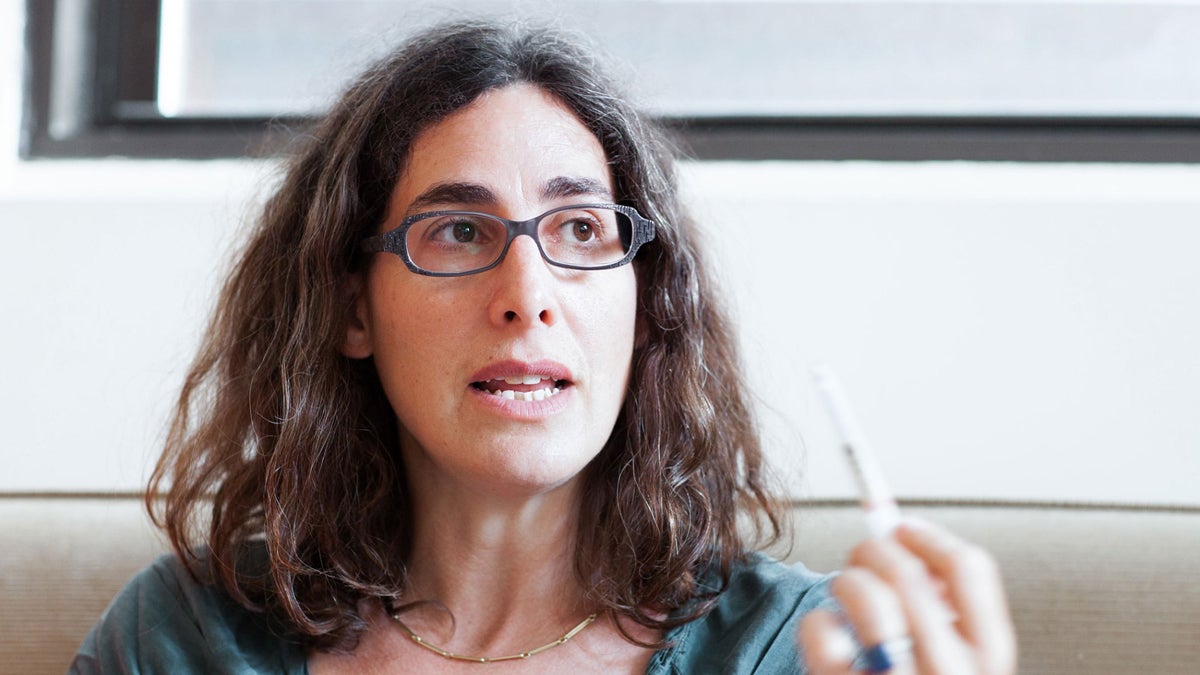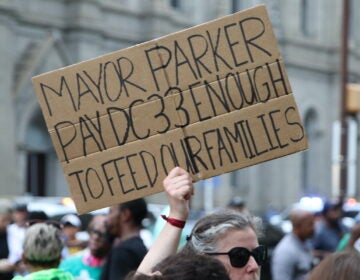With one episode left, will ‘Serial’ land well, or crash and burn?
Listen
Sarah Koenig is host and executive producer of "Serial." (Meredith Heuer/This American Life)
Have you been getting your weekly dose of Serial, the addictive true-crime podcast from the This American Life team?
Spoiler alert. If you’re not up to date on the most-downloaded podcast in iTunes history — that is, through episode 11 of 12 — stop reading now.
OK, ready?
Here’s what I think about Serial: My feelings about it are nearly as tangled and conflicted as those of Serial’s narrator, Sarah Koenig, for her main subject, Adnan Syed, who as a high-schooler was convicted in the murder of his former girlfriend.
In becoming a global phenomenon, Serial has made the hearts of public radio journalists soar like a hawk: Yay! People still love long-form narrative! Audio can too go viral! There’s an audience for our favorite moves! We have a future!
I’m not immune from those rooting interests, and I’d love just to write about why this podcast rocks, about how Serial has become appointment listening because it is bold, creative and compelling.
But the project is also, I’ve been pained to conclude as the episodes piled up, seriously flawed. It is reckless and ethically dubious.
When I first got hooked in October, during a long drive to the Berkshires, I didn’t realize the most audacious thing about this exploration of a 1999 murder in Baltimore. It is this: When Serial launched, Koenig’s reporting was nowhere near done. She didn’t know her ending.
Would she uncover proof that Syed was innocent, or would she end up like Joe McGinniss in his true crime best-seller, Fatal Vision — concluding the accused whom he’d set out to exonerate really was guilty?
This sense of being out on a high wire, right alongside the quirky, candid narrator, is unquestionably part of Serial’s addictive appeal. It also violates about 17 tenets of journalism, chief among them: Never launch the first part of a series until you know what the last part says.
Koenig has a surplus of guts, and that’s partly why her project fascinates.
Perplexingly, though, for an experienced reporter and producer, Koenig often comes across as a criminal justice novice. She does not seem particularly well equipped to plumb the standard Innocence Project questions: Was Syed’s conviction a miscarriage of justice? Does he deserve a new trial?
Perhaps that’s why she issued a Hail Mary rescue call to the Innocence Project at the University of Virginia midway through, and why Syed himself betrays a lot of irritation with her in the tapes we hear of his regular prison phone calls with her. Stop chasing emotional insights into my psyche, he complained one time, and start digging up some facts that can free me.
At times it seems Koenig’s true topic is not the factual case, but her own feelings about it.
She is fascinated by the puzzle of whether a guy whom she finds likable could really have been capable of strangling a teenage girl with his bare hands. She returns to this theme again and again. She is more like a novelist playing with the classic question of “what is evil?” than a savvy journalist hunting fresh evidence.
This brings to mind another parallel with Fatal Vision. Writer Janet Malcom wrote a classic, controversial essay about that book, saying that the work done by McGinniss (and, by implication, all journalists) was essentially exploitative and a betrayal.
As much as I have loved Serial and celebrated its stunning reach, I can’t elude some nagging questions in that vein:
If, in the end, Serial finds out nothing fresh or conclusive about the actual case, what is the justification, exactly, for putting the dead girl’s family, and other players in the case, through the brutal, exploitative pain of this retelling? And, what if Syed really is innocent, but the time and energy Koenig expends exploring the detours and dead ends into which her emotions lead her prevent her from making the case for a new trial?
Perhaps, in Thursday’s finale, Koenig will pull a miracle out of her Marantz audio recorder. Maybe Episode 12 will wipe away all my qualms.
I’m rooting for that, but I’m not hopeful.
WHYY is your source for fact-based, in-depth journalism and information. As a nonprofit organization, we rely on financial support from readers like you. Please give today.




